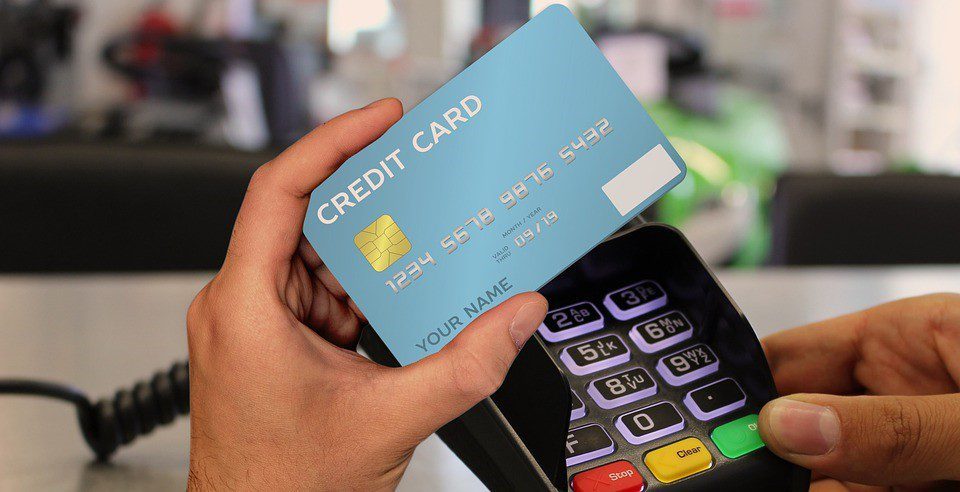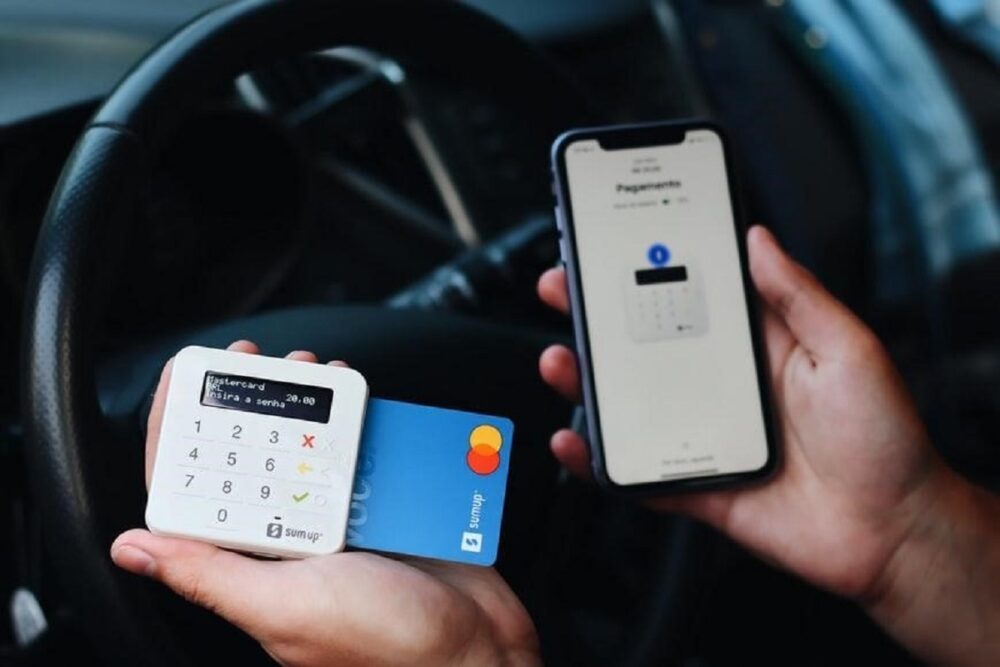Knowing the difference between credit cards is probably the last thing on your list, especially when you are young and have just stepped foot in the finance and professional world. However, as time goes by and responsibilities kick in, you thought, “oh, I wish I knew the proper use of every card earlier in my life.”
Only then would I have saved my business from all these credits and financial discombobulation. Only if you knew that you couldn’t mess up your professional, adventurous, and personal life by using only one card for everything when there’s literally a perfect pick for almost everything. To name only a few:
- Top business credit cards
- Best student credit cards Canada
- Prime personal credit cards
- Leading reward credit cards
- Great travel credit cards
And, these are only some of them. You can find tons of other options everywhere around the world. However, today, we are here to discuss the two: Personal & Business credit cards!
So, are they the same? If not, then what’s the difference between their usage? What will happen if you combine their purpose? Let’s find out bit by bit!
Personal & Business Credit Cards: Basic Concept
Is a credit card a crucial part of your everyday life? Yes? Then it is even more important for you to know about both cards’ usage, benefits, and differences. Because not doing so can have quite a few drawbacks:
- It can terminate your personal or the other business card
- It might cause you to lose the beneficial credit usage and all the credit card perks
- It may even give a reason for rejection of the credit card you recently applied for
Yes, it’s that important! As the name suggests:
“Personal credit cards are meant for your personal use while the business credit cards are supposed to only help with your business transactions.”
So, what will happen if you use your personal credit card to make your business transactions? Are there any perks? Or is it just a long steep road with only speed breakers?
Let’s know the answers by learning about the cards in detail. Here you go:
Personal Credit Cards: An Overview

A type of credit card used to make everyday slash common transactions can be a personal credit card. In simple words, you take the advance money from the bank or card company to make payments like:
- Netflix subscription
- Groceries
- Insurance
- Shopping
- Getting your nails done
- Salon appointments
- Buying morning coffee or daily food
So, an important thing to know here is the difference between a personal credit card and a debit card.
Let’s read an easy to understand comparison on the study of Erik J Martin:
|
Personal Credit Card |
Debit Card |
|
Money deducted from the company’s account |
Payment deducted from the card holder’s account |
|
Borrowed money (Buy now, pay later) |
Credit account already has money submitted by cardholder |
|
Fixed credit limit |
Credit limit depends on the money status of the account |
|
20.47% APR |
No interest rate |
So, although both cards are usually used for personal finances, these aren’t the same in working and transactions. Now, moving on to how personal credit cards work to better understand the concept.
Note: we’ll be comparing the business credit cards and debit cards later in the section so keep reading to increase your credit knowledge.
How Personal Credit Works?
A personal line of credit is calculated based on credit algorithms set by the top credit bureaus. It is equivalent to the amount of money you can get from the company. For instance, you use the available balance and pay it later at the end of the month with some interest.
Better credit scores can help you get an increase in credit limit, causing a reduction of your credit utilization, thus making your account’s credibility better. Yes, your credit score and credit limit are connected. Here are common deciding factors for your personal credit limit:
- Income value
- Debt ratio
- Credit score range
- Credit history length
- Rate of user application
Here are common deciding factors for your credit score:
- Borrowing history
- Debt repayment record
- Available and used balance
- Credit utilization
- Payment history
- Average credit age
So, is a business credit score or business credit limit different from the personal credit score and personal credit limit? 100% yes! How? We’ll discuss this later in the section. Now is the time to read about the business credit cards:
Business Credit Cards: A Brief Outline

According to OnDeck, business credit cards are made specifically to give small companies a flexible method to use credit card for professional transactions. You can use the business card for several purposes:
- Buying inventory
- Purchasing supplies
- Clearing office bills
- Managing travel payments
- Pay employee wages, and extras
- Better account management
Corporate credit cards can be used to cover small business transactions to even large payments. They can help you attract investments and earn several reward points that you can use to get discounts on various purchases.
Business Credit Card Vs. Business Debit Card
Yes, just like a personal debit card, you can also get a business debit card. However, the working and usage benefits can differ for the business type.
|
Business Credit Card |
Business Debit Card |
|
The average interest rate is 17.30% |
No interest charges |
|
Set line of business credit for usage |
No necessary business line of credit |
|
Money is taken from the company (as a loan) which the user has to pay later |
Payments made directly from business credit account (with personal balance) |
|
Business credit card options: Standard, secured, rewards, business charge |
Business debit card options: Standard, prepaid, and electronic |
How Business Credit Works?
Business credit is different from personal credit. Even the calculating algorithms are entirely different when measuring business credit scores. Similarly, your business card can have a higher credit limit, but you might have to pay a higher interest rate to earn that.
Here are the deciding factors for your business credit score:
- Healthy age of the business
- Credit mix
- The money management of business
- Debt and credit history
- Amount of business credit applications in recent times
Here are the deciding factors for your business credit limit:
- Credit history and credit report
- Credit accounts under your name
- Repayment and debt clearance record
So, why is it important to keep your personal and business credit account separate? What happens if you mix their transactions?
Personal & Business Credit Cards: Comparison
Are our business and personal credit cards the same? No! Can you interchange their usage as you like? Also, no! Let’s see a comparison table of both cards:
|
Category |
Personal Credit Cards |
Business Credit Cards |
|
Application requirement |
SSN or ITIN |
EIN (Employer Identification Number) |
|
Usage |
For personal expenditures |
For business transactions |
|
Credit score range |
300-850 |
0-100 |
|
Credit Report |
Credit reporting agency |
Business reporting agency |
|
Evaluation |
Credit score |
Business credit score or business credit rating |
|
User Protection |
Full |
Restricted |
Let’s discuss the noticeable differences in detail:
1. Credit Limit
As explained earlier, it is the borrowing limit of a card, i.e., the money the account holder can take from a bank or company.
For Personal: Usually starts at a low limit
For Business: Usually starts at a higher limit
2. Interest Rate
It is a percentage of principle a lender additionally takes from the borrower on the money taken as a loan.
For Personal & Business: Both card types usually charge almost the same interest rate depending on the package you get and your account’s history or creditworthiness.
3. Application Requirement
The process of application is similar for both cards. However, there might be some additional requirements for a business type.
For Personal: You need to provide your complete legal name, address, contact, income, social security or taxpayer-identification, etc.
For Business: You need to provide an employer identification number, business details (business age, income, address, contact), business expenses, etc.
4. Credit Score
The basic credit score algorithm for both cards is quite different. However, a personal credit score or business credit score is essential to enjoy all the card benefits.
For Personal: A credit score range for a personal card is 300-850, divided further into 5 levels: poor (300-579), average (580-669), good (670-739), great (740-799), and perfect (800-850).
For Business: A business credit score can range from 0-100, divided further into 4 levels: Low risk (100 to 76), low-medium risk (75 to 51), medium risk (50 to 26), and high risk (25 to 0).
5. Credit Report
A credit report includes the credit history, personal account information, public record, soft and hard inquiries. It is evaluated under the credit bureaus or credit rating/reporting agencies.
For Personal: Top credit bureaus like Equifax, TransUnion, and Experian look into personal credit factors to generate consumer credit reports.
For Business: You can get it from the top credit bureaus or other companies like Dun and Broadsheet.
6. Usage
The usage depends highly on the purpose of getting your card. But all in all, a personal card is used to make necessary purchases, and a business card is explicitly kept to make business transactions. However, one thing to ponder here is the mix of their use.
Can you use a personal credit card for your business transactions?
To simply answer, yes, you can put your business tab on your personal credit card. But, is it a good practice to do that? Absolutely not! According to Forbes, here’s why you should avoid that:
- Difficult expense tracking: When you use the same card to make business transactions, it will become harder for you to list down the separate expenses at the end. Of course, if you remember to do it anyway.
- No business credit score: Using your personal card for business makes you lose the chance to build your business score.
- Zero business credit history: Your personal card won’t help you build a strong business credit history, so it won’t be helpful if you need to get a corporate loan in the future.
- Put your individual assets in danger: Using the same card can put your personal assets at risk in case of a business emergency. Moreover, you’ve already been using your individual things to support your business so, the legal executive will only consider it the same.
- Fewer bonuses and discounts: Business credit cards are meant to help you with your business transactions, so not using one will keep you devoid of any benefits. Moreover, most business cards have special welcome offers, business target bonuses, and so much more.
Some business cards also offer saving programs, legal help, and employee bonus, which you can have if you get one solely for your business.
7. Consumer Protection
Consumer protection depends on your credit history and the type of credit card you are using. Also, it can vary as per your credit score range.
For Personal: It can have high consumer protection as the usage scale is generally low compared to a business
For Business: A business credit card provides consumer protection but is comparatively low as it involves more deciding factors than a personal credit card.
8. Evaluation
The evaluation criteria for business and personal credit cards have different algorithms, which come under different rating bureaus.
For Personal: Credit agencies check credit scores and credit history to evaluate the account credibility
For Business: Credit rating agencies check business credit scores and business credit history to give a business the trustworthiness potential
Final Verdict: Concluding Summary
Business and personal credit cards issued by credit card companies or banks. However, their purpose can vary depending on why you got it for. Moreover, mixing their credit can really put your personal assets at risk due to any ups and downs of your business.
That’s the sole reason why finance gurus advise credit beginners and experts to put their personal and business transactions on separate credit cards.
To help you understand the connection between both and how you must not mix their use, we have explained both cards in detail to keep them as simple as possible. So, give this article a read and enjoy the best of both worlds!







































